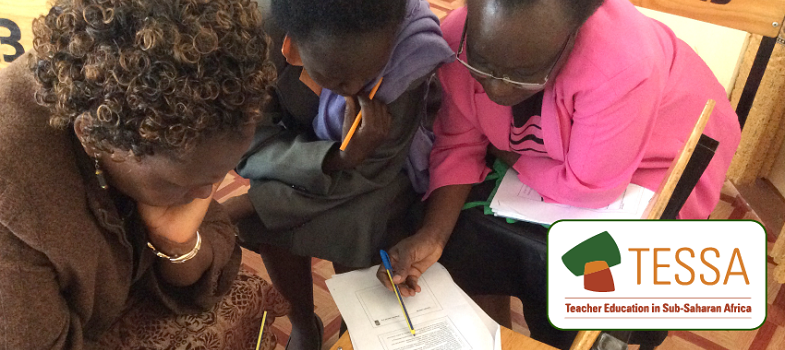Additional Readings
![]() 1. This page from the American site Teach provides more information on learning styles: http://teach.com/ what/ teachers-teach/ learning-styles [Tip: hold Ctrl and click a link to open it in a new tab. (Hide tip)]
1. This page from the American site Teach provides more information on learning styles: http://teach.com/ what/ teachers-teach/ learning-styles [Tip: hold Ctrl and click a link to open it in a new tab. (Hide tip)]
![]() 2. For further information on the multiple intelligences theory, Howard Gardner and the discussion of Gardner’s theory can be found here: http://infed.org/ mobi/ howard-gardner-multiple-intelligences-and-education
2. For further information on the multiple intelligences theory, Howard Gardner and the discussion of Gardner’s theory can be found here: http://infed.org/ mobi/ howard-gardner-multiple-intelligences-and-education
![]() 3. For further information on peer tutoring, consult the Education Endowment Foundation that reports on research on peer tutoring: https://educationendowmentfoundation.org.uk/ evidence/ teaching-learning-toolkit/ peer-tutoring/
3. For further information on peer tutoring, consult the Education Endowment Foundation that reports on research on peer tutoring: https://educationendowmentfoundation.org.uk/ evidence/ teaching-learning-toolkit/ peer-tutoring/
The paper by Toni Riester-Wood, Peers Supporting an Inclusive School Climate, gives further information on peer support (beginning with the paragraph starting ‘Peer support is a strategy that involves placing students in pairs or in small groups …’): http://inclusiveschools.org/ peers-supporting-an-inclusive-school-climate/
![]() 4. For more information on scaffolding learning, see the article Instructional Scaffolding on Wikipedia (online):
4. For more information on scaffolding learning, see the article Instructional Scaffolding on Wikipedia (online):
https://en.m.wikipedia.org/ wiki/ Instructional_scaffolding
Some of the links below are not mentioned in Inclusive Education Toolkit. However, they are useful if you wish for more information or support on some aspects of the work in the classroom and the inclusive school.
Inclusive Education
- Ainscow, M. and Miles, S. (2009) ‘Developing inclusive education systems: how can we move policies forward?’, chapter prepared for a book in Spanish to be edited by Climent Gine et al., 2009) [online]. Available at http://www.edu.am/ DownloadFile/ 66eng-Mel_Ainscow.pdf (Accessed 23 March 2016).
- Ainscow, M., Booth, T. and Dyson, A. (2006) Improving Schools, Developing Inclusion, Abingdon, Routledge. [online]. Available at https://core.ac.uk/ download/ files/ 3/ 309634.pdf (Accessed 23 March 2016).
- Alhassan, A. M. (2014) ‘Teachers’ implementation of inclusive education in Ghanaian primary schools: an insight into government policy and practices’, Advances in Social Sciences Research Journal, no. 1, vol. 2, pp. 115–29 [online]. Available at http://www.scholarpublishing.org/ index.php/ ASSRJ/ article/ view/ 124/ ASSRJ-14-0124 (Accessed 23 March 2016).
- Booth T. and Ainscow M., (2002)Index for Inclusion: Developing Learning and Participation in School [online]. Available athttp://www.csie.org.uk/ resources/ inclusion-index-explained.shtml (Accessed 23 March 2016).
- Engelbrecht, P., Forlin, C., Eloff, I. and Swart, E. (xxx) ‘Developing a support programme for teachers involved with inclusion in South Africa’, International Journal of Special Education, vol. 16, no. 1, pp. 80–9 [online] Available at http://www.internationalsped.com/ documents/ developing_a_support_programme_for_teachers.doc (Accessed 23 March 2016).
Ressources en Francais, Hesperian Foundation Resources to provide support to children with special needs: http://hesperian.org/ books-and-resources/ resources-in-french. (Guides Collection: for example, Save the deaf children, Save the blind child, disabled child in the village, as well as other resources and health guides).
- Lazarus, S., Daniels, B. and Engelbrecht, L. (1999) ‘The inclusive school’, in Engelbrecht, P., Green, L., Naicker, S. and Engelbrecht, L. (eds) Inclusive Education in Action in South Africa, Pretoria, Van Schaik.
- Mariga, L., McConkey, R. and Myezwa, H. (2014) Inclusive Education in Low-Income Countries: A Resource Book for Teacher Educators, Parent Trainers and Community Development Workers [online]. Available at http://www.eenet.org.uk/ resources/ docs/ Inclusive_Education_in_Low_Income_Countries.pdf (Accessed 23 March 2016).
- Miles, S. (2000) Enabling Inclusive Education: Challenges and Dilemmas, EENET [online]. Available at http://www.eenet.org.uk/ resources/ docs/ bonn_2.php (Accessed 23 March 2016).
- Donnelly, V. (ed.) (2010) Teacher Education for Inclusion: International Literature Review, European Agency for Development in Special Needs Education [online]. Available at https://www.european-agency.org/ sites/ default/ files/ TE4I-Literature-Review.pdf (Accessed 23 March 2016).
- Watkins, A. (ed.) (2012) Teacher Education for Inclusion: Profile of Inclusive Teachers, European Agency for Development in Special Needs Education [online]. Available at https://www.european-agency.org/ sites/ default/ files/ Profile-of-Inclusive-Teachers.pdf (Accessed 23 March 2016).
UNESCO (n.d.) Addressing Exclusion [online]. Available at http://www.unesco.org/ new/ en/ education/ themes/ strengthening-education-systems/ inclusive-education/ (Accessed 23 March 2016).
- UNESCO (n.d.) Overcoming Exclusion [online]. Available at http://www.unesco.org/ new/ fr/ education/ themes/ strengthening-education-systems/ inclusive-education/ (Accessed 23 March 2016).
- UNESCO (n.d.) Embracing Diversity: Toolkit for Creating Inclusive Learning-Friendly Environments [online]. Available at http://www.unescobkk.org/ education/ inclusive-education/ resources/ ilfe-toolkit/ (Accessed 23 March 2016).
- UNESCO (2001), Understanding and Responding to Children’s Needs in Inclusive Classrooms [online]. Available at http://unesdoc.unesco.org/ images/ 0012/ 001243/ 124394e.pdf (Accessed 23 March 2016).
Learning theories in English
The learning theories that underpin the pedagogical approach of TESSA materials are the socio-constructivist theories whose most famous protagonists are Vygotsky and Brunner. If you want to further your knowledge, there are many sites on the internet.
As starting points:
Berkeley Graduate Division (n.d.) Overview of Learning Theories [online]. Available at http://gsi.berkeley.edu/ gsi-guide-contents/ learning-theory-research/ learning-overview/ (Accessed 23 March 2016).
A summary of three of the learning theories in table form, and a menu that leads into the various learning theories.
Smith, M. K. (1999) ‘Learning theory: models, product and process’, infed [online]. Available at http://infed.org/ mobi/ learning-theory-models-product-and-process/ (Accessed 24 March 2016).
Reflections on learning, reviews of theories and literature.
Learning-Theories.com (2016) Social Cognitive Learning Theory and Other Theories and Models [online]. Available at http://www.learning-theories.com/ (Accessed 24 March 2016).
A website run by a team of volunteers in New York and San Francisco to provide easy-to-understand, high-quality content. The content is constantly reviewed and added to.
- Wikipedia (2016) Learning Theory (Education) [online]. Available at https://en.m.wikipedia.org/ wiki/ Learning_theory_(education) (Accessed 24 March 2016).
The bibliographies in these articles will give you leads to explore the theories you are interested in further.
Bibliography



